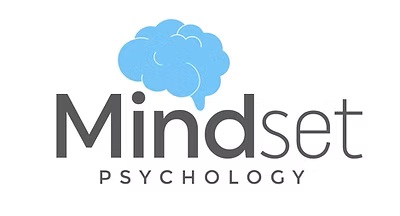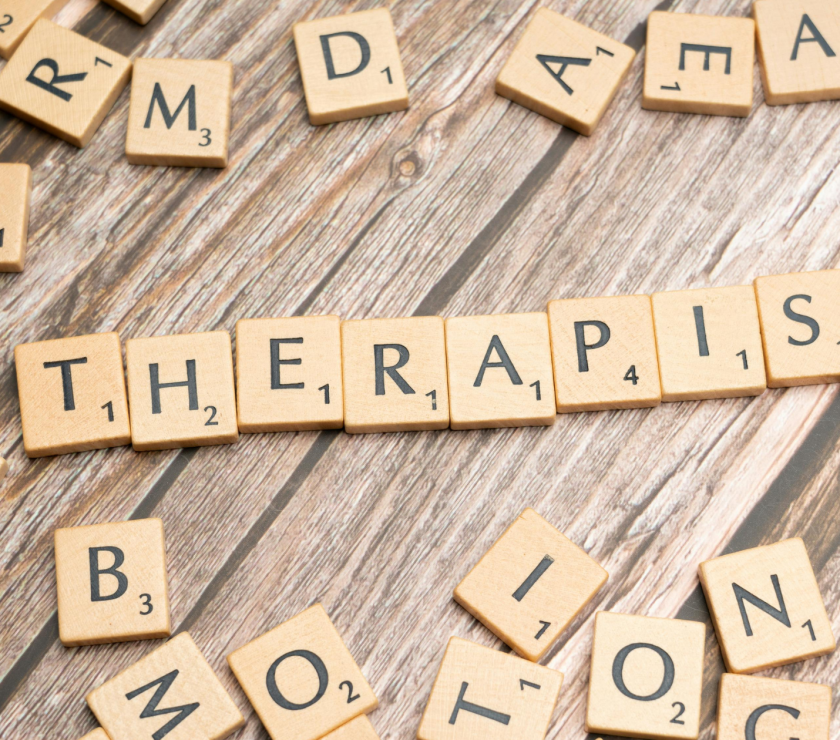Hustle is the city’s middle name, and for some, the energy can be exciting, full of opportunities, movement, and momentum. But for others, it can feel like too much: high pressure, fast paced, and mentally exhausting. The constant need to keep up with the chaos around you can wear on your emotional well-being, especially when there’s little time to pause and reset. Queens, NY, stands out as one of the city’s most diverse and vibrant boroughs, rich with culture, creativity, and tight-knit communities. Still, even a place as dynamic as Queens isn’t immune to the mental health challenges that often come with city life. The need for support is real, and that’s where local professionals step in. Finding a trusted Therapist Queens NY residents can rely on has become a crucial step for many in reclaiming balance and improving quality of life in a city where expectations are constantly rising.
The challenges that residents face can lead to persistent anxiety, ongoing stress, and even emotional burnout. Although the cultural diversity in Queens is one of its greatest strengths, it also brings unique mental health concerns tied to cultural integration, identity conflicts, and generational tensions. Immigrants and their families, for instance, may struggle with preserving their cultural roots while adapting to American norms, a process that can cause deep emotional strain. These experiences often lead to internal conflict, especially among younger generations trying to navigate dual identities. On top of that, the economic realities of living in New York City, particularly the high cost of living, create added pressure. Many residents juggle multiple jobs, long commutes, and family responsibilities, leaving little time for self-care or emotional recovery. It’s also common to experience social disconnection, despite the borough’s dense population. Fast-changing neighborhoods, busy schedules, and a culture of constant movement can make it difficult to build meaningful, lasting relationships, deepening feelings of loneliness or isolation.
Managing Stress and Anxiety
Therapists use evidence-based techniques such as cognitive-behavioral therapy (CBT), mindfulness practices, and stress management training to help clients cope with daily stress and anxiety. CBT supports individuals in recognizing and changing negative thought patterns that often fuel anxious responses, especially when dealing with the fast pace and pressure of city life. Mindfulness-based approaches, including guided meditation and grounding exercises, help clients stay present and ease feelings of worry or restlessness. Stress management tools like deep breathing, progressive relaxation, and short mental breaks can also be highly effective in calming the body and mind during high-pressure situations that often arise in urban settings. These combined strategies give clients practical ways to feel more in control and less overwhelmed in their everyday lives.
Cultural Sensitivity and Inclusive Care
Culturally aware and inclusive care is essential in a diverse community like Queens, where clients come from all different types of ethnic and cultural backgrounds. In such a multicultural environment, therapy must reflect an understanding of each client’s lived experience. The purpose of culturally competent therapy is to offer a non-judgmental space that acknowledges, respects, and adapts to a client’s unique background, values, and identity. This approach helps clients feel more comfortable opening up, knowing their culture will be treated with care and not overlooked or misunderstood. By tailoring care to the individual, therapists can build stronger connections and deliver more meaningful support that truly meets the needs of Queens’ diverse population.
Improving Work-Life Balance
In the midst of the fast-paced nature of an urban environment, therapists help clients set healthy boundaries and make self-care a priority. With demands from work, family, and city life constantly pulling in different directions, it becomes easy to feel overwhelmed. Therapists introduce tools like time management, realistic goal setting, and daily prioritization to help clients protect their personal time and prevent burnout. They also encourage clients to identify their core values and build routines around activities that feel meaningful, so work doesn’t overshadow important relationships or personal interests. Techniques such as journaling or guided relaxation help create intentional space for rest and enjoyment, which is essential for maintaining balance and mental well-being.
Building Support Systems
Therapy highlights the importance of strong social connections and helps clients build healthier, more supportive relationships. In a fast-moving and often isolating urban environment, having people to rely on can make a significant difference in emotional well-being. Therapists guide clients in identifying and strengthening bonds with friends, family, and their local community. For those feeling disconnected, participating in community events or group activities can be a helpful first step toward rebuilding a sense of belonging. In sessions, clients also learn practical skills like clear communication, setting healthy boundaries, and resolving conflicts, tools that improve the quality of both new and existing relationships. For individuals who struggle with forming connections, therapy offers support in building self-confidence and developing interpersonal skills that lead to meaningful, lasting ties.
Family and Relationship Counseling
In Queens’ multicultural settings, therapists recognize and address the complexities of family dynamics shaped by a wide range of cultural values, traditions, and expectations. Family and relationship counseling focuses on improving communication, strengthening emotional bonds, and resolving conflicts in a respectful, supportive environment. In many families, cultural differences between generations can lead to misunderstandings or tension, especially when younger members adopt new norms that differ from traditional values. Therapists incorporate cultural sensitivity into their approach to ensure that all voices are heard and respected. By honoring each family member’s background while guiding them through difficult conversations, therapy helps families navigate these differences with empathy and build stronger, more understanding relationships.
Trauma-Informed Care
Trauma-informed therapy is essential for clients who have experienced violence, discrimination, or other forms of trauma often linked to urban environments. This approach prioritizes creating a safe, supportive space where clients feel respected, heard, and in control of their healing journey. Therapists who practice trauma-informed care understand how past experiences can shape emotional responses, behavior patterns, and trust in others. They use techniques that validate the client’s feelings and emphasize empowerment, choice, and emotional safety throughout the process. By addressing trauma with sensitivity and care, therapists help clients process difficult experiences at their own pace and gradually build resilience. This respectful, patient-centered approach supports long-term healing and fosters a renewed sense of strength and stability.
Understanding the Local Community
It takes one to know one. a local therapist who lives or works in Queens understands the unique dynamics and daily challenges of the borough. From the crowded transit systems to the diverse cultural mix and fast-changing neighborhoods, they are familiar with the stressors that come with city life in Queens. This firsthand knowledge allows them to offer more relatable guidance and practical strategies. Because they share a connection to the area, they can better empathize with what residents go through and help clients adapt in ways that feel realistic and culturally appropriate. Working with someone who truly gets the local experience can make therapy feel more grounded and effective.
Convenience and Accessibility
Having accessible mental health care in the neighborhood is especially important for New York residents juggling busy schedules and long commutes. Working with a local therapist ensures that sessions are easier to fit into a client’s day, whether before work, during lunch breaks, or after hours. This level of convenience reduces the barriers that often prevent people from starting or staying consistent with therapy. When getting help feels practical and manageable, clients are more likely to commit to their sessions and prioritize their mental health regularly. Local care not only saves time, it also supports long-term wellness by making therapy a more realistic part of everyday life.
Take the Next Step Toward Healing
You don’t have to navigate life’s challenges alone. Our Long Island therapists provide a safe, supportive space for you to heal and grow.
Community Connections and Resources
Local therapists often have valuable insight into nearby resources such as support groups, wellness programs, and cultural organizations that can complement therapy. Because they’re familiar with the area, they can offer tailored recommendations that align with a client’s specific needs, background, and interests. Whether it’s suggesting a community yoga class, a culturally specific support group, or a neighborhood event focused on mental health, these referrals can strengthen the therapeutic process. Having access to community-based support adds another layer of care and helps clients feel more connected, making their journey toward mental wellness more well-rounded and sustainable.
How Mindset Psychology in Queens Can Help
Mindset Psychology is a trusted provider of therapy services in Queens, NY, with a culturally competent team dedicated to supporting the mental health needs of diverse New Yorkers. With deep knowledge of the local community and an inclusive approach to care, the clinic offers a safe space for individuals to explore challenges and work toward meaningful change. Their team of licensed therapists is experienced in addressing the emotional complexities that come with city living, providing care that is both compassionate and tailored to each client.
Mindset Psychology offers a range of therapeutic services, including:
Anxiety management- Anxiety can affect nearly every part of daily life, from work performance to personal relationships. At Mindset Psychology, therapists use proven techniques like cognitive-behavioral therapy (CBT), mindfulness, and breathing exercises to help clients recognize and manage their anxiety symptoms. Sessions focus on identifying triggers, reframing negative thought patterns, and developing calming strategies to build resilience. Clients are also guided through relaxation tools and real-life coping skills to reduce physical symptoms like restlessness, tension, and rapid heart rate. Over time, this support helps individuals gain confidence in their ability to handle anxiety and feel more in control in everyday situations.
Trauma therapy– Trauma can leave lasting emotional and physical effects that interrupt daily life and relationships. Mindset Psychology offers trauma-informed care that provides a safe, judgment-free space for clients to process painful experiences at their own pace. Therapists use approaches such as EMDR, narrative therapy, and somatic awareness to help individuals reconnect with their sense of safety and stability. The goal is not to relive trauma, but to understand its impact and regain a sense of empowerment. By addressing emotional wounds with compassion and care, clients begin to heal and rebuild trust in themselves, others, and the world around them.
Relationship counseling– Healthy relationships require communication, empathy, and mutual understanding, all of which can be supported and strengthened through therapy. At Mindset Psychology, relationship counseling is available for couples, families, and individuals working through interpersonal challenges. Therapists guide clients through common issues such as conflict resolution, emotional disconnect, trust concerns, and differences in communication styles. By providing tools for active listening, setting healthy boundaries, and expressing needs constructively, counseling creates space for stronger connections. In Queens’ multicultural context, therapists are especially sensitive to the cultural dynamics that shape relationships, ensuring sessions are respectful of all values, identities, and family structures.
Stress reduction techniques– Stress is an unavoidable part of modern life, especially in a busy borough like Queens, but it doesn’t have to control your day-to-day experience. Mindset Psychology equips clients with a range of stress reduction techniques designed to improve focus, mood, and overall well-being. These may include guided relaxation, mindfulness, grounding exercises, time management planning, and lifestyle changes that support long-term balance. Clients learn to recognize the early signs of stress and respond with tools that help them stay calm and present. By building practical habits and coping skills, therapy helps individuals reduce burnout and regain a sense of peace and control.
What sets Mindset Psychology apart is their commitment to creating an environment where clients feel seen, heard, and supported. Each therapist combines evidence-based methods, such as cognitive-behavioral therapy and mindfulness, with cultural awareness to ensure care that is both effective and respectful. Whether you’re facing stress from work, relationship challenges, or the effects of trauma, their approach is designed to meet you where you are.
Living in Queens brings many rewards, but it also presents unique mental health challenges, from fast-paced routines to navigating cultural expectations. Having the right support can make all the difference. Working with a therapist at Mindset Psychology gives you the tools to manage life’s pressures and build a more balanced, fulfilling future.
Take the First Step
Ready to prioritize your mental health? You can learn more about Mindset Psychology’s personalized therapy services by visiting their website. Whether you’re managing stress, anxiety, trauma, or relationship concerns, their team is here to support you. Schedule a consultation today and begin your journey toward improved emotional well-being with a compassionate, culturally sensitive therapist who understands the unique challenges of living in Queens, NY.



